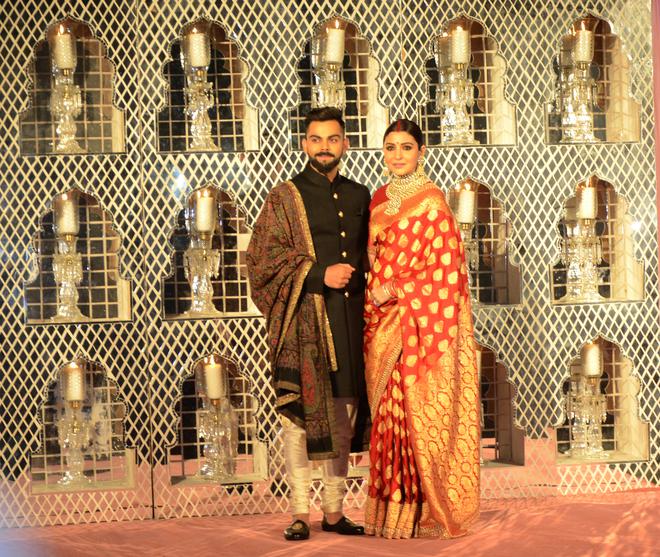Saeed Ur Rahman, the Banarasi masterweaver who works with weavers across 800 looms, quotes lines from a Majrooh Sultanpuri poem when asked how he and his family grew from strength to strength and came to be known as one of the prominent Banarasi masterweavers:
“Main akela hi chala tha janib-e-manzil magar,
Log saath aate gaye karvan banta gaya.”
(I set off alone towards my destination, but people kept coming along and it became a caravan)
He was instrumental in founding the Taj Estate at Bhelupura, Varanasi, which has now become a go-to address for unique heirloom Banaras textiles. Designer Sabyasachi Mukherjee is among those liaising with Rahman for custom-woven saris.
The masterweaver is in Hyderabad for an exhibition and talk at the Crafts Council of Telangana premises, CCT Spaces.
Saeed hails from a family of weavers whose speciality is in handwoven delicate organza, cotton and fine count silk. “We are a family of six brothers. During our grandfather’s time, the family used to weave and sell textiles. During my father’s time, our family went through a rough phase and the focus was on weaving, not marketing and selling,” he recounts during this brief interview with The Hindu. In later years, he introduced tussar and jute fibres in Banaras saris.
He took to weaving as a teenager and says the joy and satisfaction of being able to weave was unmatchable: “We worked together as a family. If I have to sell a handloom sari woven by our family, I need knowledge of textiles and heritage weaves. That is how it began. I sold one sari and was elated. One thing led to another and we began working with other weaver families.”
In the early 1980s, the brothers knew it was time to have a formal establishment to sell handwoven Banaras saris woven by their family and that of other weavers. During a visit to Delhi, a textile expert advised them to register a company and start selling. Saeed and his brother set up Taj Estate as an independent firm in 1986: “We started working with several weaver families and the rapport that we continue to have with them is that of one weaving family with another, rather than just a masterweaver with other weavers. As orders grew, our loom base expanded.”

Orders kept coming in through their store in Varanasi and through designers for weddings and special occasions. Saeed cites the example of a Banarasi sari worn by actor Anushka Sharma as part of her bridal trousseau and the ripple effect it had: “Suddenly, a lot more women showed interest in Banarasi saris. When celebrities wear a handloom sari, it benefits the business and the weavers.”
But there have been rough phases as well. The pandemic brought sales to a grinding halt for a brief time, he says. “We told the weavers to use their savings wisely. We placed orders for a few saris to keep the morale of weavers high. We would advise them to weave at least for a few hours a day to avoid getting depressed.”
A few special weaves also took shape during this time. The weavers worked on 10 Banarasi ‘rangkat’ saris, which are unique for their woven colour block patterns. Saeed shows another gossamer-like sari named Hawa Mahal, in which the jaali pattern gives an airy quality to the sari. “Weavers were not sure if the rangkat saris would find takers. But all the 10 saris got sold.”
Such special saris, he says, can take three or four months to weave. “Such saris require the focussed attention of weavers and it is possible to weave only two to four inches each day. When it takes longer to weave a sari, it is the duty of the master weaver to give the weaver some financial support till the order is complete.”
Saeed says several weavers put up small paan, vegetable or tea stalls when the business was bleak. “Some of them went to Surat and Bengaluru, among other cities, in search of jobs. Things are getting better now and the process is on to make these weavers return home and take to weaving. There is no greater joy than weaving from home.”
A few master weavers, he says, also took to Instagram and Facebook to find new customers. While Taj Estate has a social media presence, it is limited. Saeed says his attention is completely on textile work and his son is keen on having a larger social media presence to take the business forward.
The boom of powerlooms in Varanasi has been talked about as a threat to handlooms. Saeed has a measured view on the issue and says, “Powerlooms are a necessity of our times for mass production and to produce cheaper saris; handlooms have artistic quality. We cannot dismiss or fight powerlooms, though we are aware of the competition. Those who want artistic handloom saris will come to weavers. There is a story behind every unique handloom sari.”







